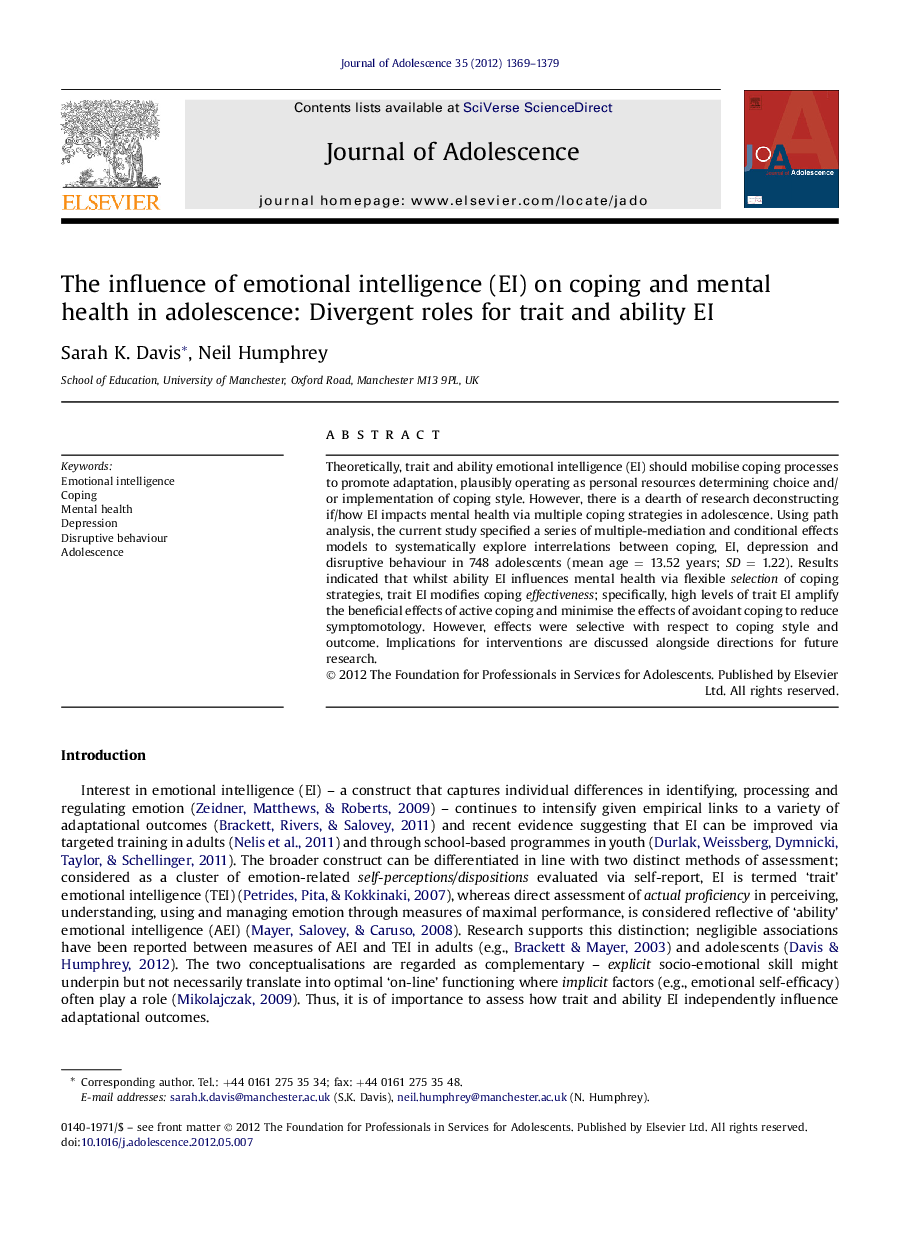| Article ID | Journal | Published Year | Pages | File Type |
|---|---|---|---|---|
| 881061 | Journal of Adolescence | 2012 | 11 Pages |
Theoretically, trait and ability emotional intelligence (EI) should mobilise coping processes to promote adaptation, plausibly operating as personal resources determining choice and/or implementation of coping style. However, there is a dearth of research deconstructing if/how EI impacts mental health via multiple coping strategies in adolescence. Using path analysis, the current study specified a series of multiple-mediation and conditional effects models to systematically explore interrelations between coping, EI, depression and disruptive behaviour in 748 adolescents (mean age = 13.52 years; SD = 1.22). Results indicated that whilst ability EI influences mental health via flexible selection of coping strategies, trait EI modifies coping effectiveness; specifically, high levels of trait EI amplify the beneficial effects of active coping and minimise the effects of avoidant coping to reduce symptomotology. However, effects were selective with respect to coping style and outcome. Implications for interventions are discussed alongside directions for future research.
► Trait and ability emotional intelligence (EI) should mobilise coping processes to promote adaptation. ► Path analyses examined links between multiple coping styles, mental health & EI in 748 adolescents. ► Ability EI impacts mental health via flexible selection of coping styles. ► Trait EI modifies the effectiveness of active and avoidant coping styles. ► However, effects were selective with respect to coping style and mental health outcome.
